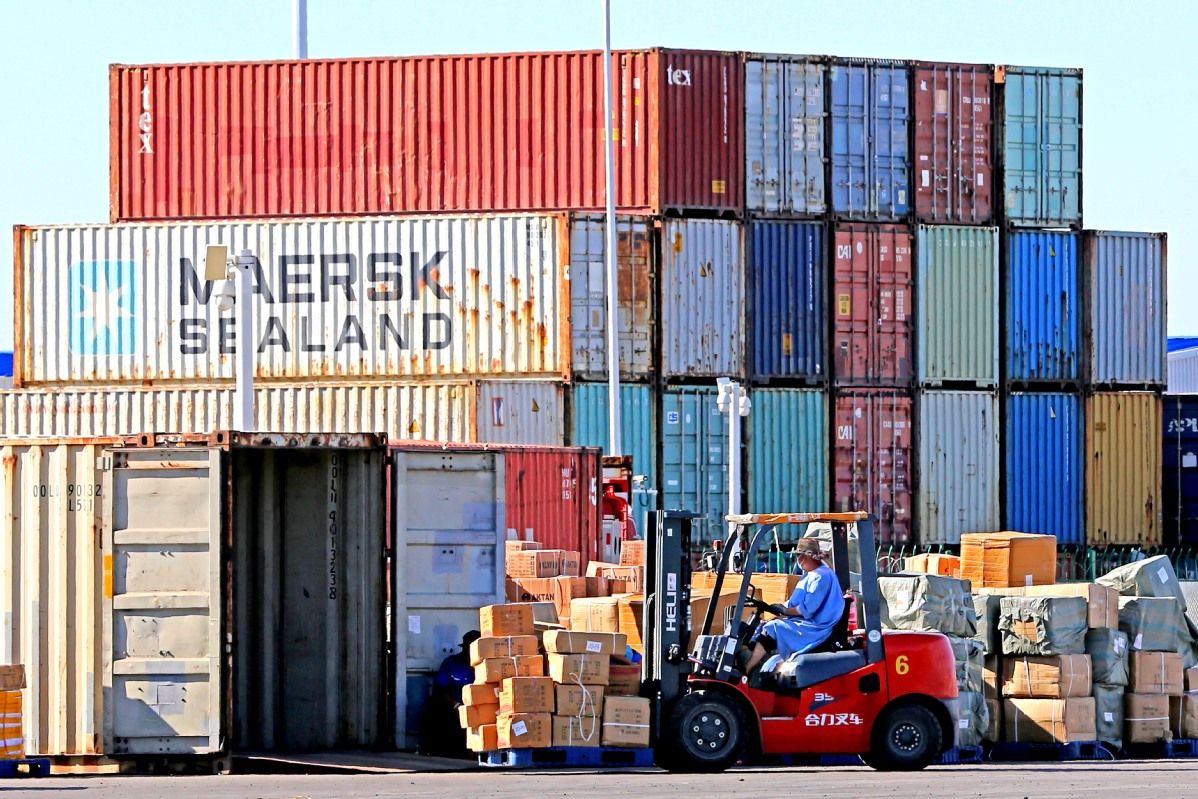source: editor:Zhang Wenni
 A worker transports cargo with a forklift at the Urumqi International Land Port Area in the Xinjiang Uygur autonomous region in July, 2023. CAI ZENGLE/FOR CHINA DAILY
A worker transports cargo with a forklift at the Urumqi International Land Port Area in the Xinjiang Uygur autonomous region in July, 2023. CAI ZENGLE/FOR CHINA DAILY
The China (Xinjiang) Pilot Free Trade Zone is expected to play an important role in expanding economic ties between China and the rest of the world, experts agreed at a recent symposium.
The FTZ in Xinjiang's southern area was established on Nov 1 and is hoped to become a new frontier for opening-up. It has subzones in Kashgar prefecture, Urumqi and Horgos.
Tong Jiadong, a professor at Tianjin-based Nankai University, said the FTZ will allow for the strengthening of cooperation and exchanges with the countries involved in the Belt and Road Initiative and Eurasia.
He made the remarks at a symposium about the development of the FTZ in Guangzhou, Guangdong province, last week attended by government officials, academics and experts.
According to Tong, the Urumqi subzone of the FTZ should strengthen links between land ports and airports, with a focus on developing advanced manufacturing, biopharmaceuticals, exhibitions and modern service industries, to create favorable conditions for economic development and cultural exchanges in Central Asia.
The Kashgar subzone should focus on international trade and logistics, and on developing labor-intensive industries, establishing relevant training and cultural exchange centers.
The Horgos subzone is an important environment for developing border service trade, cross-border tourism and renminbi internationalization, he said.
Ma Xingrui, Party secretary of Xinjiang, has urged relevant departments to ensure that the FTZ is market-oriented, law-based and favorable to the international business environment.
By leveraging the advantages of overlapping policies and the role of a comprehensive experimental platform for reform and opening-up, the construction of an open industrial system around advantageous industries should be accelerated in the coming months, Ma said at a work conference on the development of the FTZ.
Fu Zhengping, dean of the Institute of Free Trade Zone, Sun Yat-sen University, said even though Xinjiang has obvious geographical advantages, its shortcomings are evident. He said the FTZ should utilize existing cooperation mechanisms, such as the Shenzhen and Kashgar cooperation mechanism, to strengthen links with the Guangdong-Hong Kong-Macao Greater Bay Area, and draw on the practices of the GBA to promote modern service trade in the following years.
Li Shenglan, a professor at Sun Yat-sen University, said the FTZ is the first one established in China's northwestern border region and so can capitalize on plenty of opportunities.
"This is not only a major measure for the country to coordinate and solve the imbalance in regional development, but also a major strategy and important opportunity to accelerate the formation of a new hub for reform and opening-up in Xinjiang," said Li.